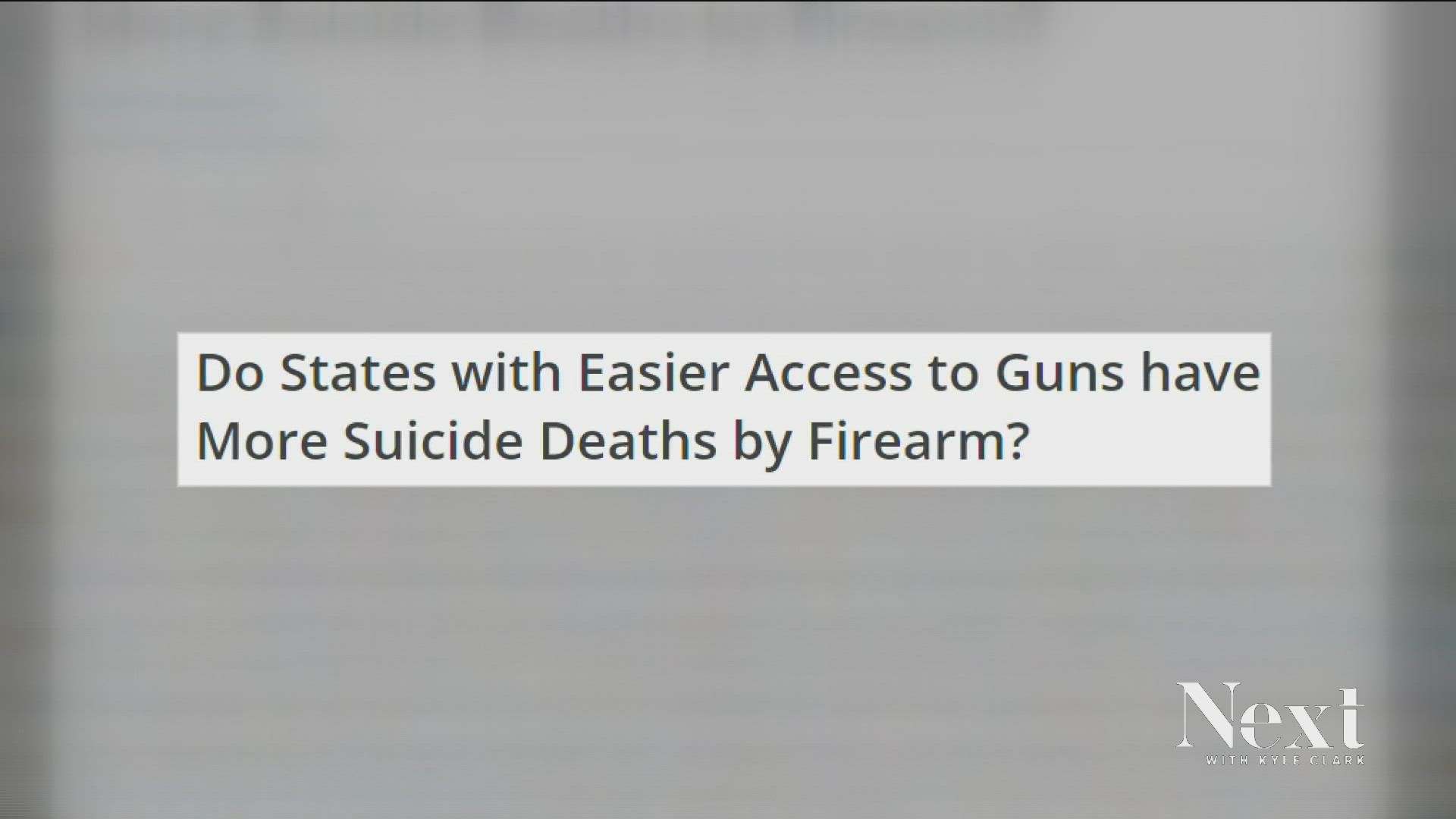DENVER — A newly published Kaiser Family Foundation study looks at access to guns and how it impacts suicide rates.
The study said "suicides account for over half of all firearm deaths (54%), and over half of all suicides involve a firearm (53%)."
It also said two times as many suicides involving a gun happen in states with the fewest gun laws compared to states with the most laws.
The study broke it down by firearm provisions, writing:
"We grouped states into three categories according to the number of firearm law provisions. States with the lowest number of gun law provisions (17 states) had an average of six provisions and were placed in the "least" category; states with a moderate number of laws (16 states) had an average of 19 provisions and were placed in the "moderate" category; and states with the most firearm laws (17 states) had an average of 61 provisions and were placed in the "most" firearm provisions category."
The study itself, however, points out this doesn't mean a direct correlation. Colorado is an example of that.
Colorado is 7th in the nation for suicide rates but ranks in the top 20 with gun rules and regulations, with the Kaiser study counting 30 firearms provisions.
The first thing that comes to two experts' minds is the state's geography.
Dr. Michael Allen with the Rocky Mountain Crisis Partners said Colorado is complicated, especially as an intermountain western state, with so many different urban and rural communities.
"Higher rates of suicides in those rural and frontier communities," said Vincent Atchity with Mental Health Colorado, "There can be feelings of isolation and disconnectedness."
As well as hurdles to access care.
Culture is also a factor.
"Sort of this rugged individualist kind of culture," said Dr. Allen, "Where people at least feel like they should be taking care of themselves."
"Guns have been present, a part of people's lives, for generations," said Atchity. "Any recent gun legislation over the course of the past decade doesn't really impact the availability of guns in communities that have had guns in families for generations."
These are all factors in why Colorado doesn't fit the trend.
"We may begin to see a correlation around extreme risk protection orders," said Dr. Allen.
But where guns become a risk factor is how lethal it can be.
"One part of the conversation," said Atchity.
The experts said to help work towards a solution involves looking at all factors.
Why the suicide rate in Colorado has historically been so high has many factors, including stigmas stopping people from getting help or finding help in time. Colorado is working on increasing resources, but it is a work in progress.
It also involves talking about access to guns, rules and programs that could help protect people, and talking about gun safety before a moment of crisis.
A reminder - there is always help available through Colorado Crisis Services.
That number is 844-493-8255 or you can text the word "talk" to 38255.
There is also a new national mental health hotline you can call.
Just call 9-8-8.
SUGGESTED VIDEOS: Full Episodes of Next with Kyle Clark

